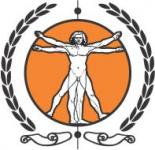Laboratory of DevelopmentPerson
Laboratory of Development is a project based on the experience I’ve been gathering for 35 years studying the knowledge systems, practices and doctrines of the basic ethnic groups all over the world. The practice base thus developed is in fact a method for human improvement and development.
The practitioner: The difference between the first and the second levelPerson
One of the basic problems for the practitioner is related to the fact that the beginner does not focus his attention on where he might be in the nearest future. He is in a state of expectation, thinking that things will naturally clarify themselves, they will come naturally. As a result, he is not simply incapable of moving ahead, but disguised under new ‘garment’ his old problems get reinforced and he starts actually moving backwards.
Brainless means unfocusedPerson
Unless our mind is focused, we cannot develop our body symmetrically since the energy is not distributed evenly. The focus of the consciousness is determined either by its total suspension or the development of an interlocking effort. In fact – although this may sound a bit offensive for the ones who work on developing their brain – in terms of energetic indicators, for the body the state of not-thinking is equivalent to the state of thinking. In other words, ‘Brainless’ is either the person who has not learned how to think normally or the person who is being distracted from the state of not-thinking by certain thoughts.
Knowledge Should Be Higher Than UsPerson
Often practitioners rely on a person, a human. This should be analysed. We should understand that knowledge should always be higher than us. It doesn’t matter how we call this knowledge – Daoist yoga, belly dance, or something else. The task and principals are all the same everywhere.
What is good and what is badPerson
How can we answer these seemingly ordinary questions that our children ask if we realize we have, in fact, no clear answer for ourselves? How can we teach our children to think independently, and not mislead them with some clichés and formulaic replies? How can we communicate well and build a good relationship with our children so as to help them avoid making the mistakes we have made? How can we teach our children not to judge yet still be able to distinguish clearly light and healthy from dark and sick?


